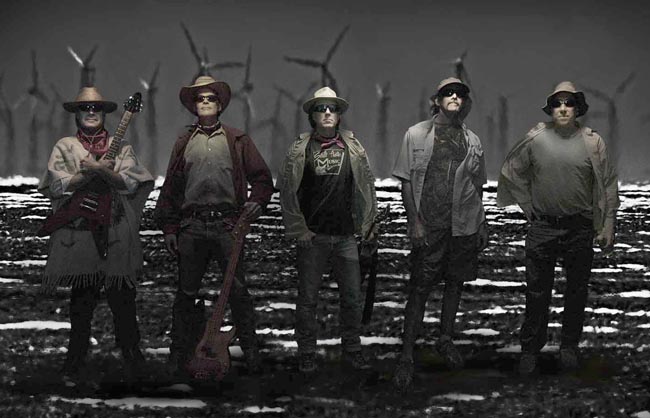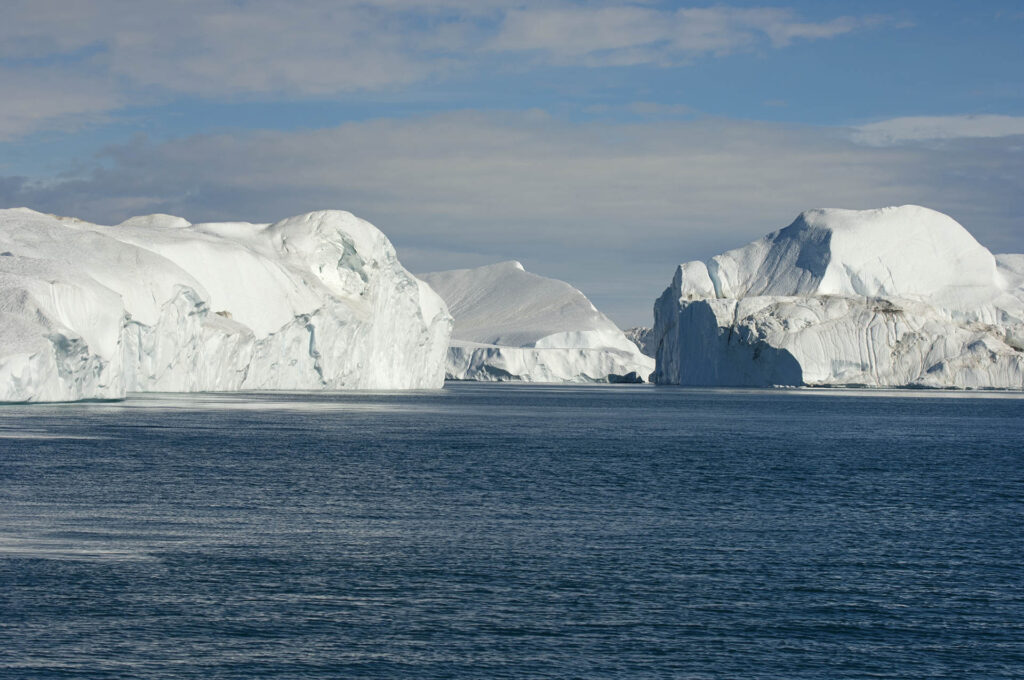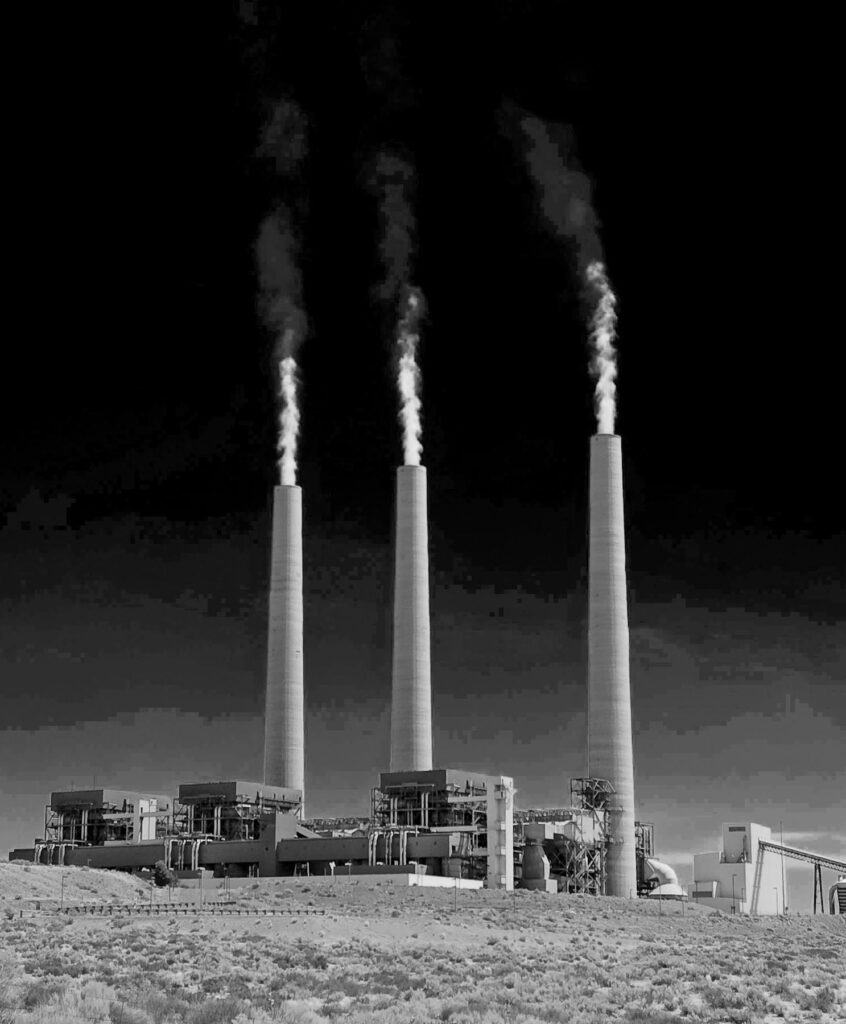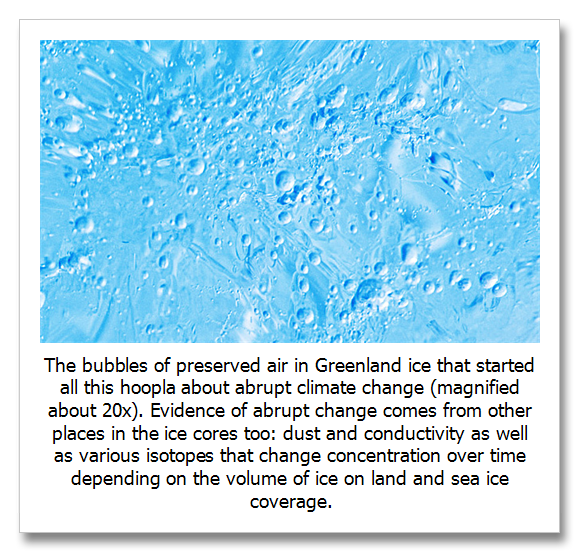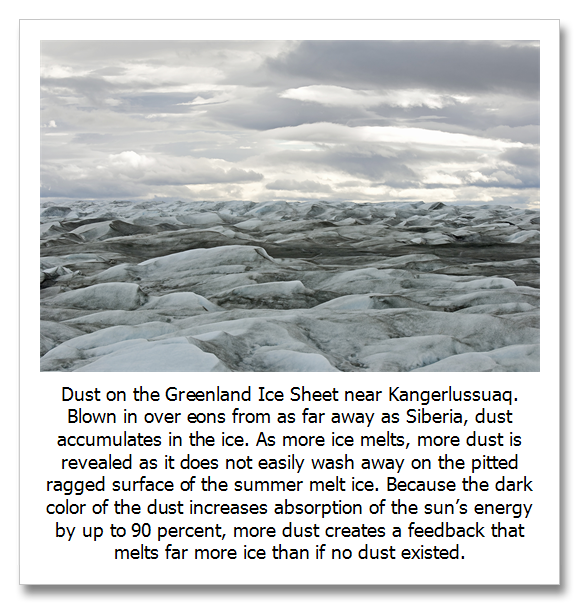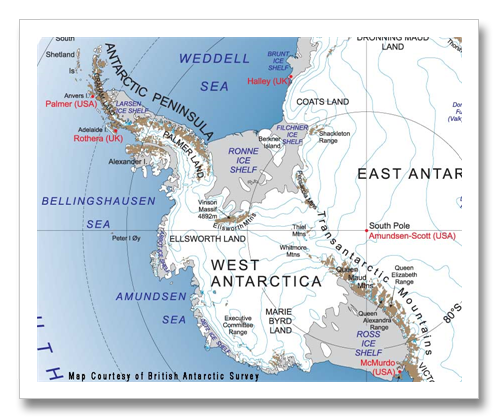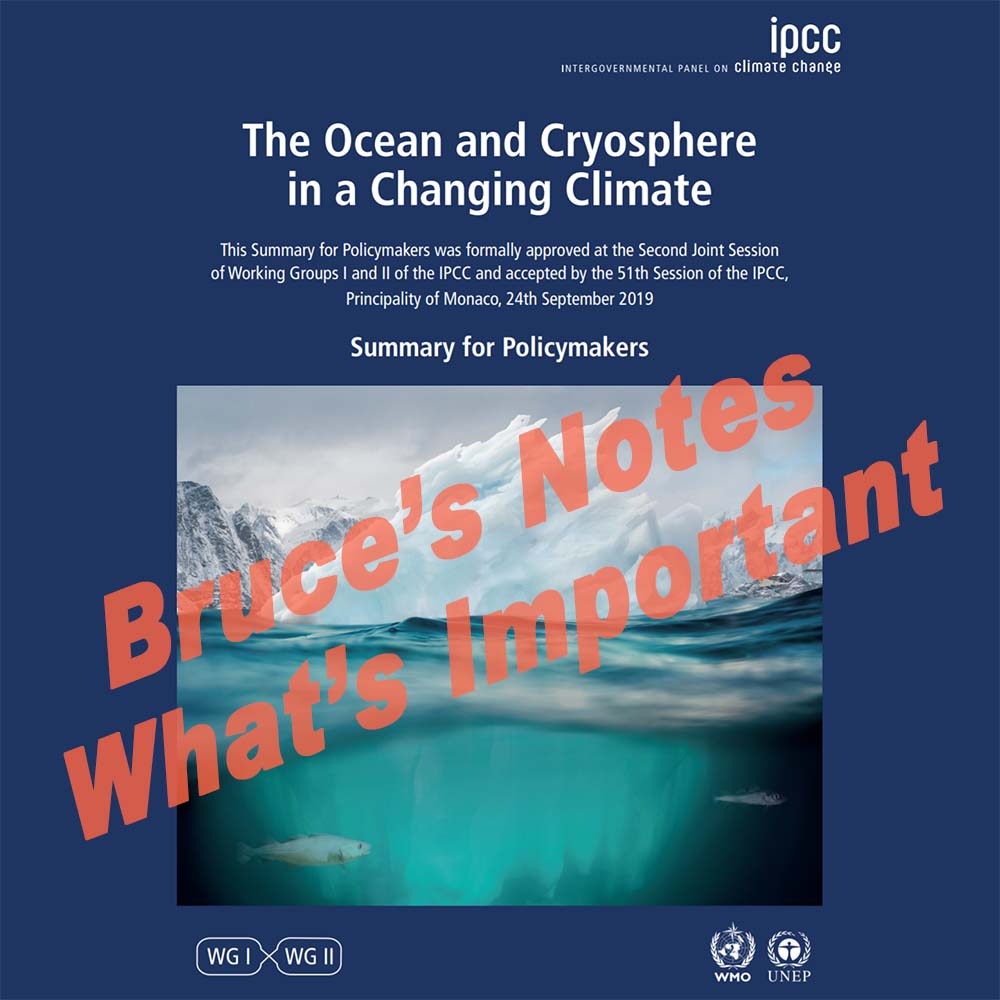
Intergovernmental Panel on Climate Change (IPCC) Report, September 24, 2019 The Ocean and Cryosphere (the icy part of our planet) in a Changing Climate A Summary of Important Findings Overall of course, climate change is astonishingly worse with every new report. This one is no exception. Polar and mountain ice are melting faster, the…





